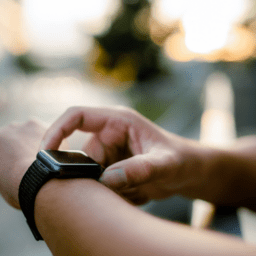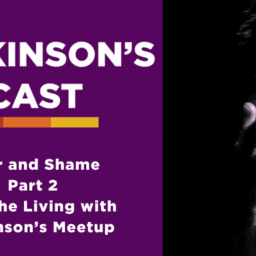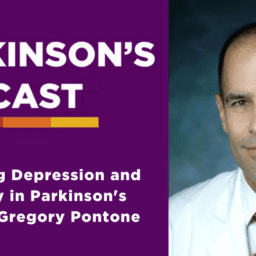Receiving a Parkinson’s diagnosis when you’re young is overwhelming enough. Being a woman with a Parkinson’s diagnosis adds an additional layer of complexities and challenges.
In this episode
Our YOPD Women’s Council and special guest Kathleen Reardon discussed:
- The road to their Parkinson’s diagnosis
- The differences between men and women when it comes to symptoms and medications
- The importance of advocating for yourself and finding the right doctor
- Finding joy through new creative pursuits
To download the transcript, click here.
(Note: This isn’t a perfect transcript, but it’s close.)
Show Notes
- It is important for women to be their own advocates when it comes to their medical care. Since appointments with your neurologist may be few and far between, arrive at your appointment with a list of items you wish to discuss with your doctor, along with a record of your symptoms. (Use our “Goal Summary for Doctor Visits” worksheet to help you determine your priorities for each appointment.) Being prepared and knowing what you hope to accomplish through the appointment will help you maximize your limited time with your doctor
- When early symptoms of Parkinson’s begin to appear, women may be more likely to write them off and think that “it’s all in their head.” Women, including YOPD Women panelists Kat Hill and Gaynor Edwards, often attribute symptoms such as stress, aching muscles, tremors, anxiety, depression, and insomnia to their monthly cycles, pre-menopause, menopause, or simply stress
- Women with Parkinson’s who are pregnant may need to avoid certain medications because of unknown risks, and therefore their Parkinson’s symptoms may be exacerbated
- Many women living with Parkinson’s credit creative outlets, such as drawing, poetry, painting, and dance, with helping them find or renew joy and meaning in their lives
- Currently, there is little research about women with Parkinson’s, and especially pregnant women with Parkinson’s. (You can learn more about Parkinson’s related research inequities in our recent webinar with Dr. Nabila Dahdwala, MD, and Dr. Jonathan Jackson, PhD)
- It can be frustrating for women living with Parkinson’s to hear from their non-Parkinson’s friends that they “look great,” when their symptoms may have little to do with their outward appearance. One way to work through this frustration is to kindly educate friends and family about what to say, and not to say, to someone with Parkinson’s
additional resources
5 Reasons to Join (or Start) a Women’s Only Parkinson’s Support Group
How the Arts Can Help You Live Well with Parkinson’s
[Video] How to Live Well with Parkinson’s Through Dance & Creative Expression with Amy Carlson
Join Us for our First-ever Poetry as Medicine Cafe
Kathleen Reardon, who joined the panel as a special guest, discussed her work as a writer and painter. She also explained how she has found considerable value in the practice of meditation. You can find links to her work and referenced practices below.
“Finding information about being a woman with Parkinson’s was challenging”
“Did You Really Say That?” A Repertoire of Responses Women Need Now
Thanks for Listening!
To share your thoughts:
- Leave a note in the comment section below.
- Ask a question by emailing us here.
- Share this show on Facebook.
To help out the show:
- Leave an honest review on iTunes. Your ratings and reviews really help, and we read each one.
- Subscribe on iTunes.
Listen & Subscribe
Apple Podcasts | Stitcher
*The Second Season of the Parkinson’s Podcast is made possible through generous support in honor of Dr. Margaret Hilgartner.

















